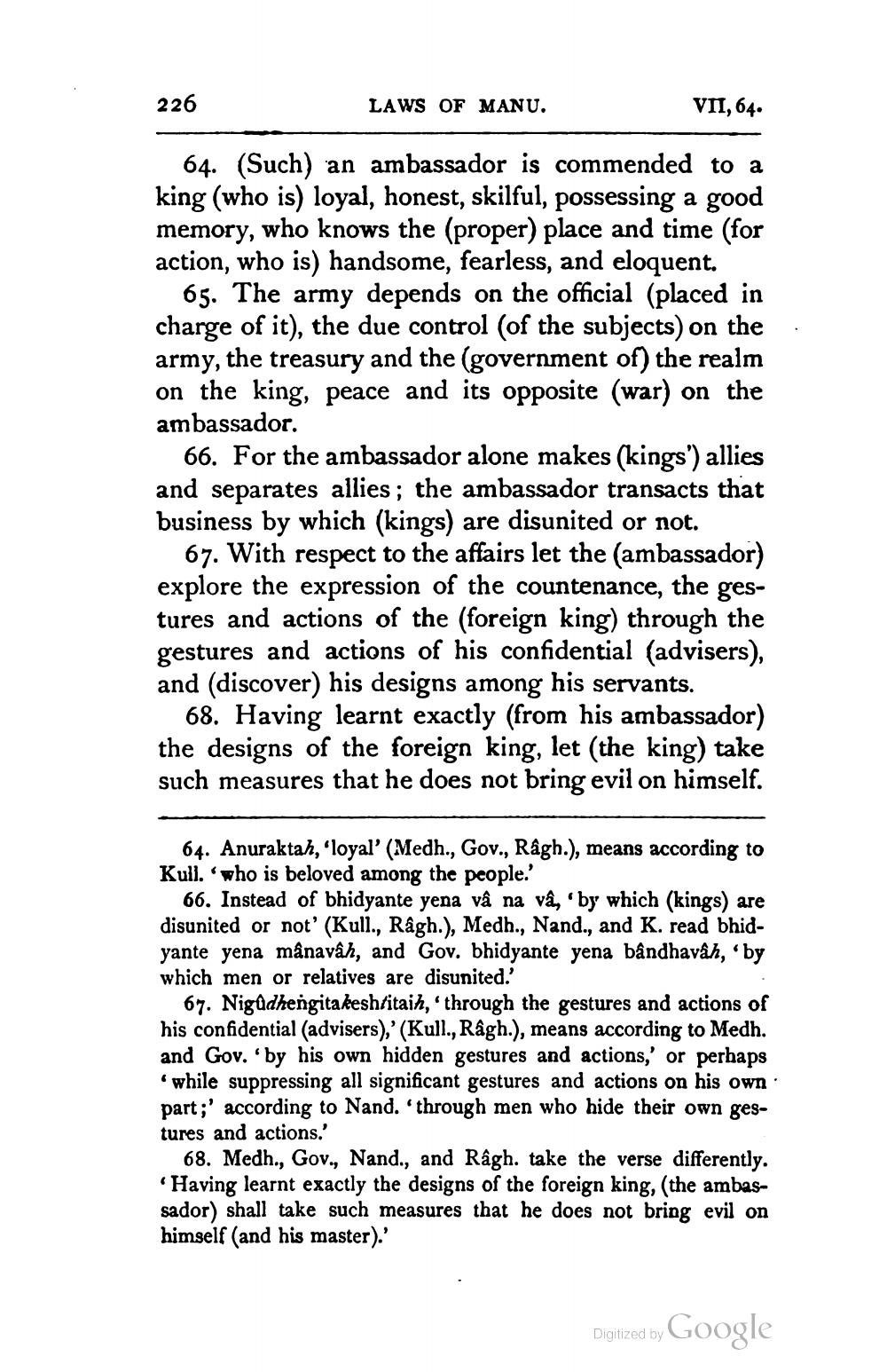________________
226
LAWS OF MANU.
VII, 64.
64. (Such) an ambassador is commended to a king (who is) loyal, honest, skilful, possessing a good memory, who knows the (proper) place and time (for action, who is) handsome, fearless, and eloquent.
65. The army depends on the official (placed in charge of it), the due control (of the subjects) on the . army, the treasury and the (government of) the realm on the king, peace and its opposite (war) on the ambassador.
66. For the ambassador alone makes (kings') allies and separates allies; the ambassador transacts that business by which (kings) are disunited or not.
67. With respect to the affairs let the (ambassador) explore the expression of the countenance, the gestures and actions of the (foreign king) through the gestures and actions of his confidential (advisers), and (discover) his designs among his servants.
68. Having learnt exactly (from his ambassador) the designs of the foreign king, let (the king) take such measures that he does not bring evil on himself.
64. Anuraktah, "loyal' (Medh., Gov., Râgh.), means according to Kull..who is beloved among the people.'
66. Instead of bhidyante yena vâ na va, 'by which (kings) are disunited or not' (Kull., Râgh.), Medh., Nand., and K. read bhidyante yena mânavâh, and Gov. bhidyante yena bândhavâh, 'by which men or relatives are disunited.'
67. Nigûdhengitakeshtitaih, 'through the gestures and actions of his confidential (advisers),'(Kull., Râgh.), means according to Medh. and Gov. 'by his own hidden gestures and actions,' or perhaps
while suppressing all significant gestures and actions on his own part;' according to Nand. 'through men who hide their own gestures and actions.
68. Medh., Gov., Nand., and Râgh. take the verse differently Having learnt exactly the designs of the foreign king, (the ambassador) shall take such measures that he does not bring evil on himself (and his master).'
Digitized by Google




